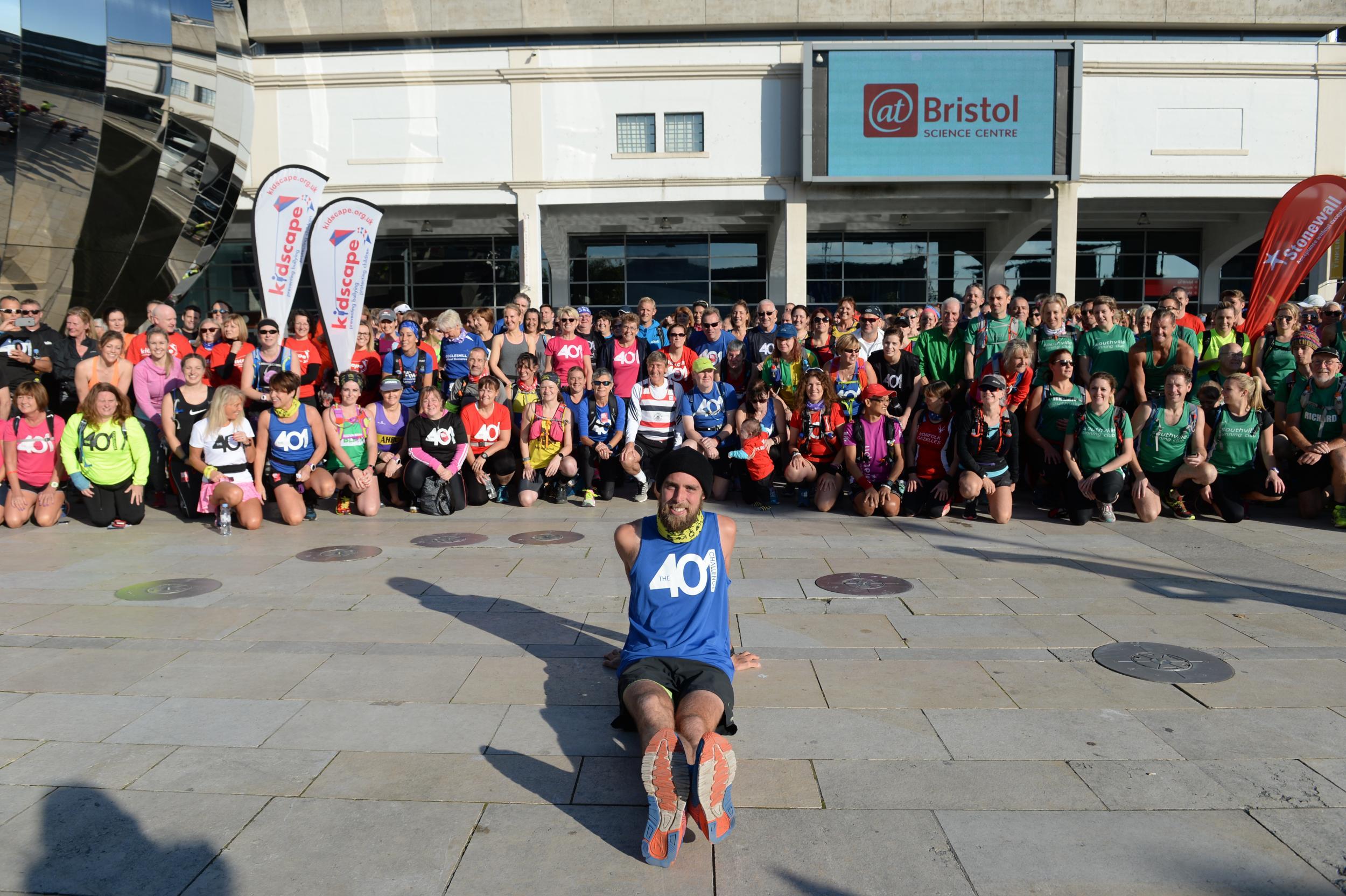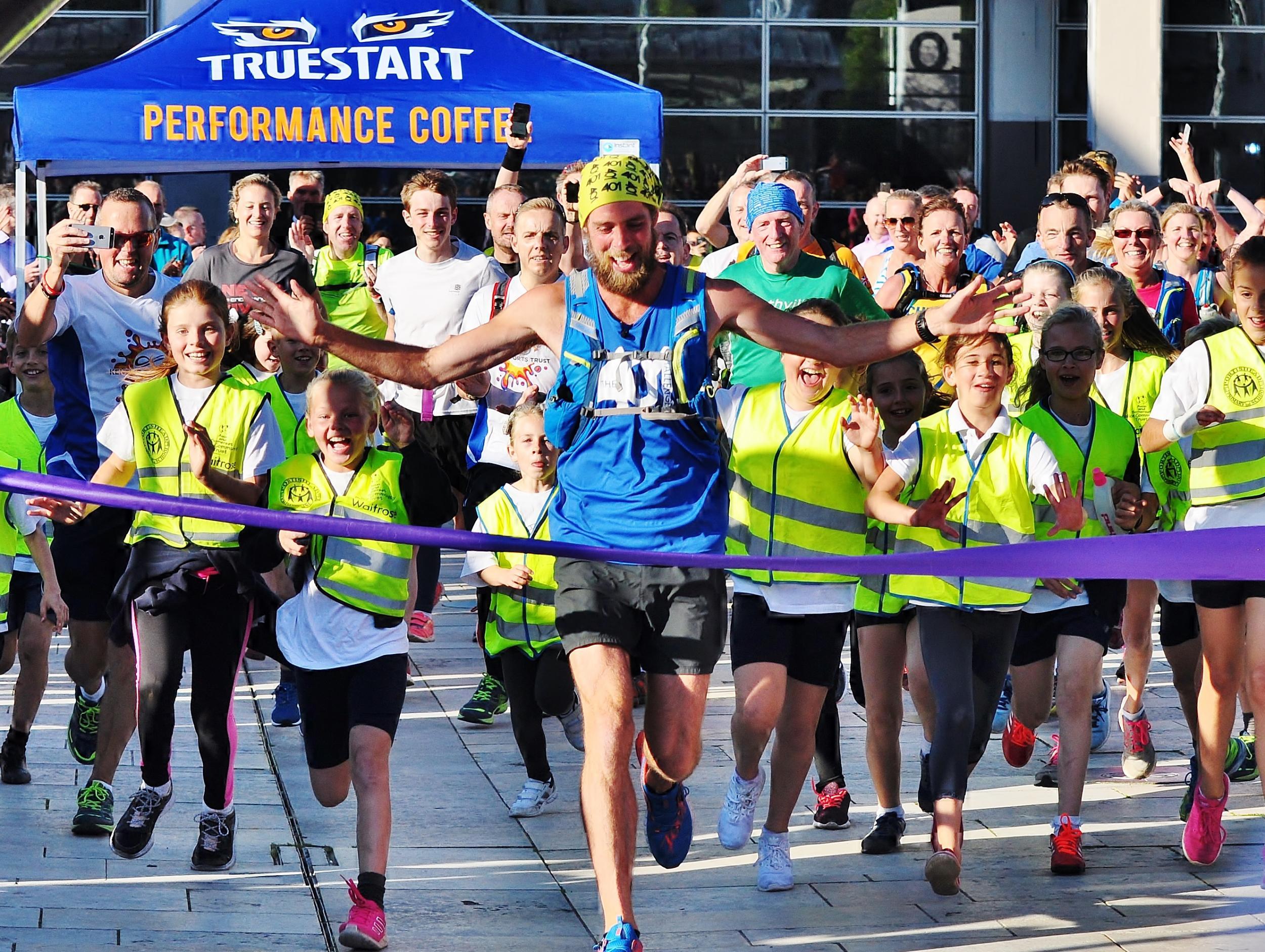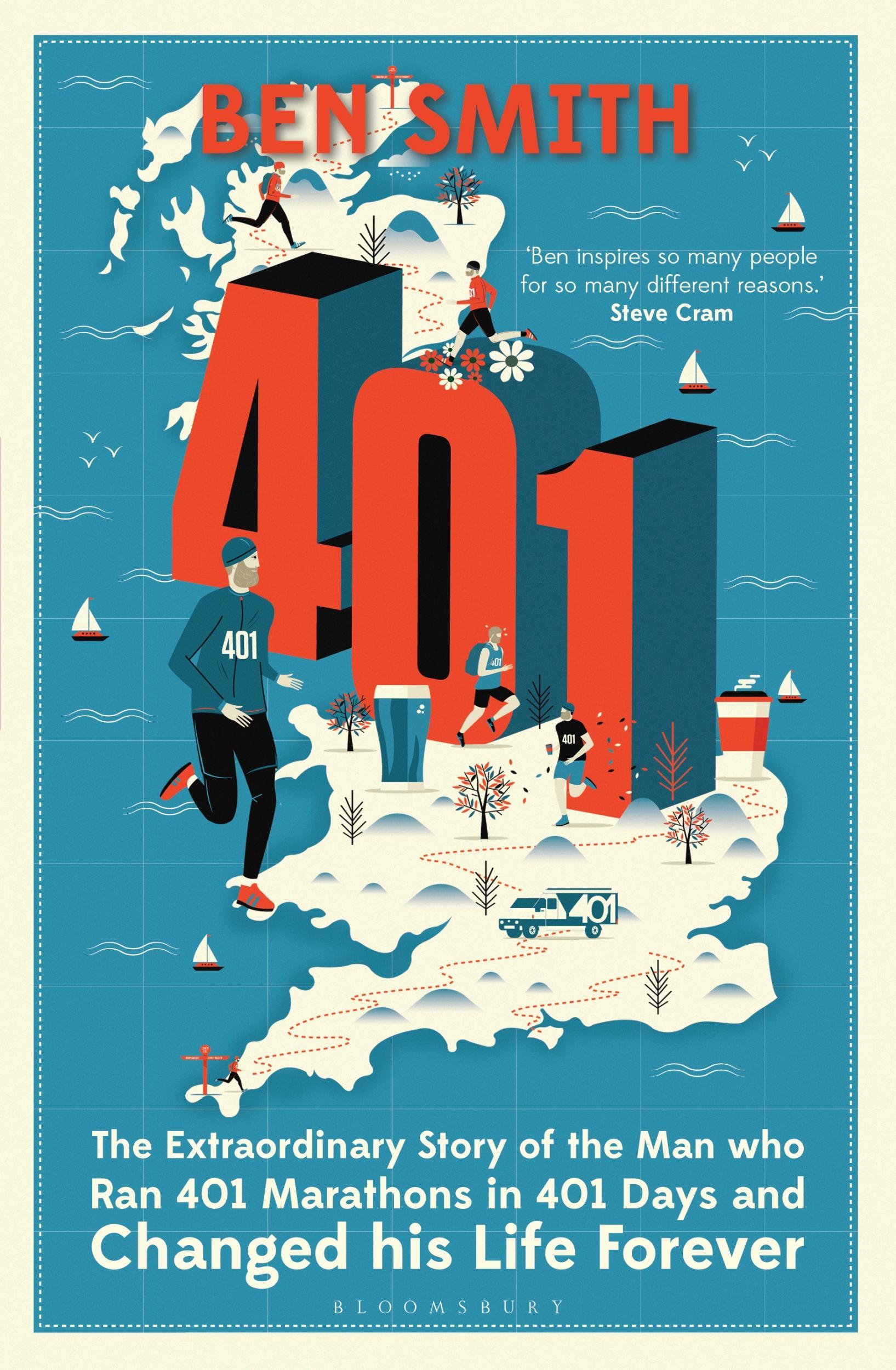The Independent's journalism is supported by our readers. When you purchase through links on our site, we may earn commission.
A man ran 401 marathons in 401 days - this is what happened to his mind and body
Ben Smith inspired the world with his phenomenal feat
Running a single marathon is an absolutely remarkable achievement.
However, one man took his love of running to new heights when he decided to run 401 marathons consecutively for a project that would transform his life forever.
So how does an individual go from enjoying running as a therapeutic activity to taking on the challenge of a lifetime and inspiring the world in the process?
What may sound like a huge leap was actually a gradual transition for Ben Smith, a 36-year-old from Portishead, Bristol.
In his 20s, Smith had led a very unhealthy lifestyle. He was a frequent smoker, drinker and followed an unwholesome diet.
Everything came to a head when Smith was 29 years old, as a he suffered a TIA - a transient ischaemic attack, otherwise described as a “mini stroke”.
A year after Smith’s health scare, a friend of his took him to a local running club in Bristol.

Smith felt nervous and scared at first, intimidated by the prospect of being faced with an onslaught of talented runners.
The fear reminded him of the way he’d felt as a child growing up, as he’d spent years being bullied throughout his childhood.
However, his worries subsided when he met the fellow runners at the club.
“I remember going and there were more people that looked like me,” he told The Independent.
Although he struggled at times during that first run, it spurred him on to take up running regularly, as he felt as though a “fire had been lit in my stomach”.
However, at this point the idea of running a marathon, let alone 401 in a row, wasn’t even on his radar.
After six months of running, Smith took part in his first half marathon.
He then set himself a goal of running his first full marathon within a year, which he did in 2013 by participating in the Brighton Marathon.
Smith had clearly caught the running bug, as he took part in 18 marathons all over the world in 2014.
However, he was hungry for more, which is how he conceived the idea of consecutive marathon running. “I wanted to see what the next challenge would be,” he said.
After doing extensive research, Smith came across a man who had run 365 marathons in a row.
Smith decided to round that number up to the nearest hundred and then add an additional mile for a “victory lap”, which is roughly how the number of 401 marathons came about.
Smith set off from Bristol on September 1 2015 for a challenge that would see him run in 309 locations around the UK, burning around 2.9 million calories in total and raising an incredible £330,000 for charities Stonewall and Kidscape.
He sold all of his belongings and bought a camper van, committing himself entirely to the cause.
While the 401 marathon project may have been a more physically testing challenge at first, keeping himself motivated proved especially difficult as time went on.
“In the beginning, it was definitely more physical than mental,” he said, as he explained how his body was able to adapt to the demands of the multiple marathons.

However, the trickiest part was making sure he maintained a positive mindset throughout.
“The moment your head goes, the moment your focus goes, then it’s a slippery path,” he said.
As more people became aware of Smith’s endeavour, many dubbed him “Forrest Gump” and thousands ran alongside him during his marathons across the UK.
However, it wasn’t until he ran the Manchester marathon in 2016 that Smith was able to consider the profound impact that his inspirational project had made on thousands of people.
“We ended up getting thousands of letters from people saying I ran with you, or I had a friend run with you, or I’ve been watching you on social media and I’ve gone out and done my first run and I feel so much better, or I’ve been bullied and I never thought there was any hope for me,” he said.
“I don’t think we’re ever going to figure out the impact that the project had on people’s lives. It was so personal to so many different people, and it’s something that we’re really proud of.”
When asked what advice he’d give to any individuals running the London Marathon for the very first time this year, he explained that the spectators who come out in their droves to watch will play a pivotal role.

“The crowds will carry you,” he said. “It’s almost like this energy from the sidelines consumes you as you’re running. There’ll be lots of goosebump moments right the way through.”
401: The Extraordinary Story of the Man Who Ran 401 Marathons in 401 Days and Changed His Life Forever by Ben Smith is published by Bloomsbury Sport and is available here for £12.99.
In 2016, Smith was awarded the Helen Rollason Award at the BBC Sports Personality of the Year show for his incredible achievement.
Join our commenting forum
Join thought-provoking conversations, follow other Independent readers and see their replies
Comments
Bookmark popover
Removed from bookmarks